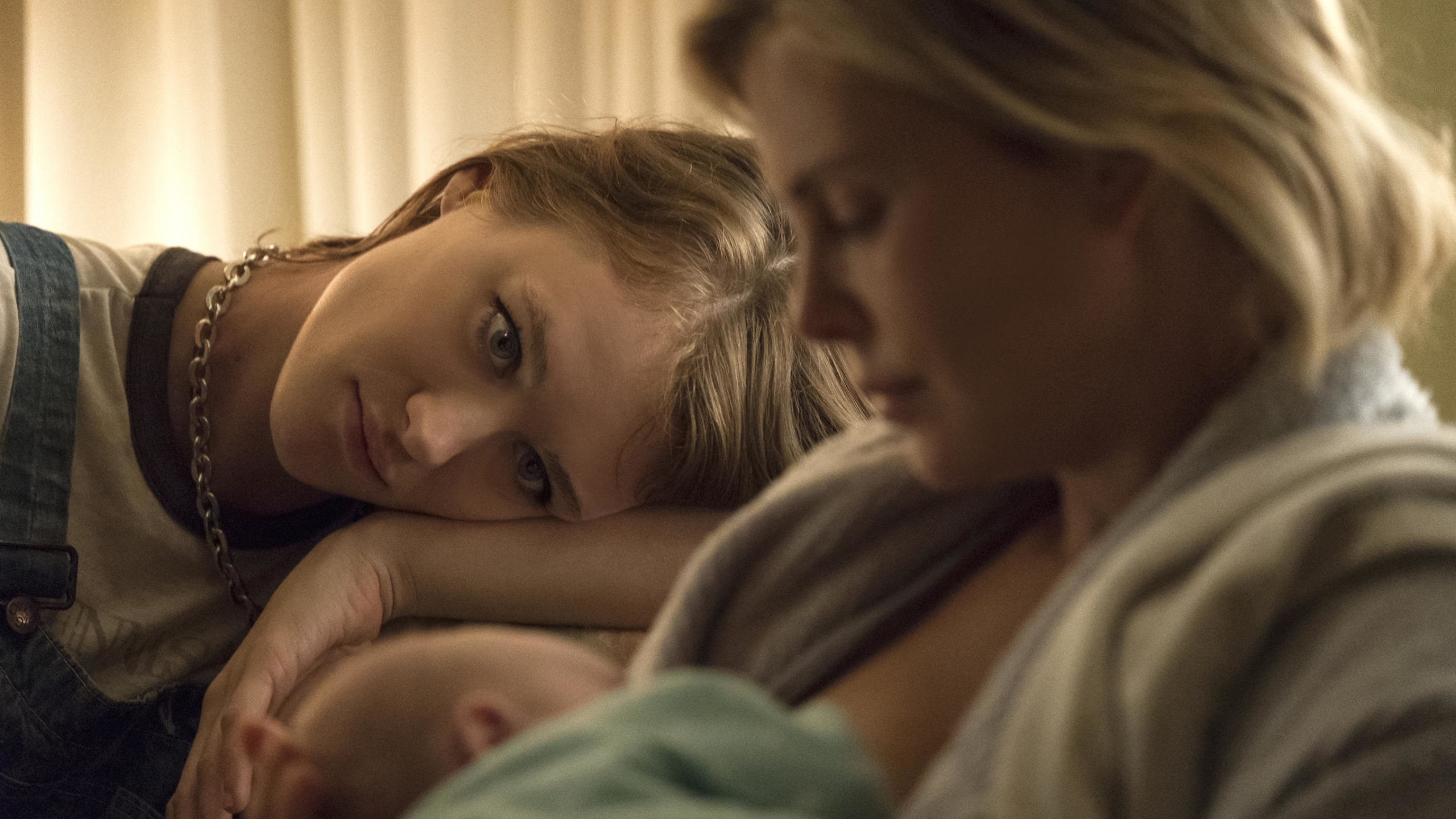
MPAA Rating: R | Rating: ★★★
Release year: 2018
Genre: Comedy, Drama Director: Jason Reitman
Tully is the third collaboration between director Jason Reitman and writer Diablo Cody in what I’d call a Momming-of-Age Trilogy, films centered on female protagonists going through existential crises and blurring the lines between adolescence and adulthood with a view towards being a mother. Where Charlize Theron played the extended adolescent Mavis in Young Adult, she’s motherly Marlo in Tully, a 40-year-old mother of three caught in the doldrums of suburban bourgeoisie exhaustion. Her husband Drew (Ron Livingston) works during the day and plays video games in bed at night, while Marlo cares for the kids all day until passing out in front of the TV. When her wealthy brother Craig (Mark Duplass) offers to pay for a night nanny to watch the baby so she can get a full night’s sleep, she reluctantly gives in to the luxury. Enter Tully (Mackenzie Davis), a spunky 26-year-old with seemingly boundless energy and beauty. At first wary of allowing a complete stranger into her home to care for her newborn child, the relationship between Marlo and Tully grows in intimacy and revelation.
I am the parent of three young children, so what often must feel like comedy (or even horror) in Tully came across as downright normal, even mundane. A wonderful montage sequence highlights the sticky rhythms of motherhood with perfectly paced drudgery–crying, diapers, breastfeeding, car seats, strollers, and screen time are the liturgy of life with an infant. Theron reportedly put on 50 lbs for the role, and her maternal body is put on full display here; when her daughter pointedly asks, “Mom, what’s wrong with your body?” it’s both funny and poignant. Honestly, I expected the parenting tropes to be far worse, and perhaps the film would play differently for non-parents. There simply weren’t enough bodily fluids to make this a truly authentic parental experience. Not that anyone wants to see another projectile vomit scene in a film.
But Tully isn’t necessarily striving for the surface struggles of parenthood as much as the identity crisis that can come from bringing another life into the world. Marlo admits to Tully that she used to be fun and energetic once, but that her life has slipped away from her, held now in the grip of the tiny hands of her children. She describes past romantic loves–even hinting at being bi-sexual–as like riding the various wonderful creatures on a carousel, until she finally settled on Drew, whom she describes as a “bench.” Her whole life feels like a bench–static, boring, sat-upon. Yet Tully also reawakens an appreciation for life in its fullness, reminding Marlo of the goodness of parenthood and familial consistency, that perhaps the boring stability of a solid marriage and healthy children is, in fact, the dream of 20-somethings everywhere. In a world where they’re being tossed by the waves of cultural change, the anchor of family roots appears comforting. Whether or not this is accurate to the real world is beside the point; Tully is more interested in diving into the id and ego of maternal identity via Marlo and Tully’s relationship than exploring millennial sexual ethics. Indeed, Tully centers on the blurred lines of selfhood, how we somehow remain the same person while still changing dramatically with each new life stage. At age 33, married and with three kiddos, I know that I’m a remarkably different person than I was at 23. I’m not quite sure I would recognize that Joel if he were to walk into the room; he certainly wouldn’t recognize me.
IMDB Listing: https://www.imdb.com/title/tt5610554/
Leave a Reply